Neil McCormick's great British songbook: 100 homegrown hits

Culture hit lists banner
These isles are full of noises. Or, rather, they are full of songs. From nursery rhymes and lullabies to pop hits and jingles, show tunes and hymns, songs provide the soundtrack of our daily lives.
It is often said that the golden age of songwriting occurred in the United States between the Twenties and the Fifties, a musical era that coincided with the advent of recording technology. At that time, jazz was expanding melodic and harmonic horizons, while the rise of the cinematic musical created a new demand for inventive lyricists, pushing popular song towards ever greater sophistication.
A group of particularly creative songwriters rose to the occasion – among them Cole Porter, George Gershwin and Irving Berlin. They composed a witty, moving collection of pieces that, together, would become known as The Great American Songbook. Many decades on, new recordings of these “American Standards” continue to appear, sung by contemporary vocalists as varied as Rod Stewart, Diana Krall, Paul McCartney, Lady Gaga and Bob Dylan.
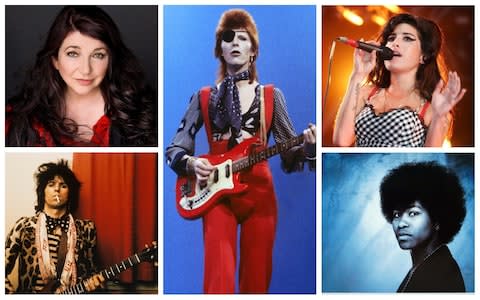
But to call these the finest songs ever composed is to overlook a centuries-old tradition of British songwriting whose roots go deeper and whose branches extend further; one that – as proven by the list on these pages – has produced songs every bit as rich, emotional and meaningful.
Its zenith came with the arrival, in the Sixties, of the Beatles. The peerless compositional team of John Lennon and Paul McCartney introduced to British songwriting a whole new level of craft and invention – and their influence remains undimmed. For all the subsequent shifts in musical fashion, it is striking that the two biggest-selling superstars of modern music, Adele and Ed Sheeran, belong firmly within this formal British singer-songwriting tradition.
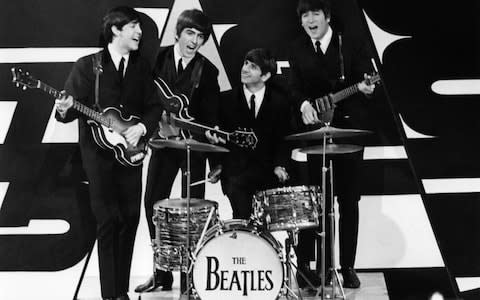
What follows is not a list of great records: in making my selection for a Great British Songbook, I have tried not to be influenced by performance, recording quality or production values. Each one of these songs can be sung with only the barest accompaniment, all have a timeless depth of meaning and feeling, and all lend themselves to reinterpretation. There is very little here that could be construed as rock or dance – and no rap at all. Those are genres designed to provoke a different response and they need to be judged on their own criteria.
Rock has been the high impact music of our times, effecting a radical change in pop culture, but its driving component is a kind of sonic power. Britain has produced some truly extraordinary rock anthems, from My Generation by the Who and (I Can’t Get No) Satisfaction by the Rolling Stones to the Sex Pistols’ Anarchy in the UK. But it would be hard to argue they retain the same power when stripped to their bones and sung unaccompanied. Similarly, subtracting rhythm from the equation leaves dance music at a distinct disadvantage.
As for rap, it has become part of the baseline of pop culture over the past few decades – introducing thrilling new voices and approaches to music – but as a hybrid form it has dramatically shifted the balance of lyric and melody, favouring the former to such a degree that I am not sure we should call it song at all. Only recently have we seen rap moving towards more melodic priorities. This, however, is a list of British songs to be sung.
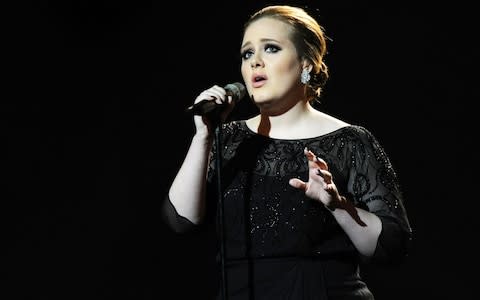
Which brings me to the issue of diversity, or the lack of it. Popular music, like so much Western art over the centuries, has marginalised women and, regrettably, the paucity of female artists included reflects that. There are only 16 songs by women in my 100; the achievements of those voices that shattered the glass ceiling seem all the more remarkable when you consider the struggle they faced just to be heard.
This century, the gender balance in pop seems to be shifting, with the arrival of Adele, Florence Welch, Laura Marling and others. Perhaps if someone were to make another such list in 50 years’ time, the balance would be justly even.
I made some rules for myself: I only considered songs from England, Scotland, Wales and Northern Ireland (and had to dispense with several choices co-written by Americans). I initially limited songwriters to two entries apiece but in the end could not justify sticking to that limit in the case of the Beatles, Elton John, David Bowie and Elvis Costello: I could have fashioned a convincing top 100 from their work alone.
Since the point was to identify songs that transcend genre, I chose not to group entries by style. Instead, in order to illustrate the sheer range of British songwriting, I created categories focusing on subject matter, each containing five songs. Yet love, in all its aspects, has always been the prime subject of popular song, and so many of my categories (Longing, Desire, Romance, Enduring Love, Heartbreak and Torch Songs) are really just other ways of saying: love songs. The truth is that the greatest songs tend to defy neat categorical definition. Although I haven’t ranked all 100, I have singled out my top 10.
These 100 songs are by no means the only great British songs ever written, but they are all extraordinary and outstanding pieces, with lyrics and melodies built to last. This is my canon, a Great British Songbook to stand the test of time.
To listen to all 100 of these tracks on Spotify, go to: spoti.fi/2M9dian or use the webplayer below
The Top 10
10: Something – The Beatles (Harrison), 1969
As if two genius lyricists in one band wasn’t enough, George Harrison’s late blooming as a writer produced a host of classics to add to Lennon and McCartney’s haul, notably this shimmering evocation of desire which was Frank Sinatra’s favourite Beatles song.
9: Why – Annie Lennox, 1992
In a heartbreaking account of a disintegrating relationship, the personal becomes universal: Lennox transforms her pain into a song about cruelty and injustice.
8: Jesus to a Child – George Michael, 1996
Perhaps Britain’s most soulful singer-songwriter, Michael was at his most tender and moving in a song plucking solace from grief for a dead lover. His bold image of Jesus smiling on a child represents the resurrection of love itself.
7: Who Knows Where the Time Goes? – Sandy Denny, 1967
Achingly lovely meditation on passing time from one of our most neglected talents. Former Fairport Convention singer Denny, who was dead by 31, was a preeminent figure of the Sixties British folk scene.
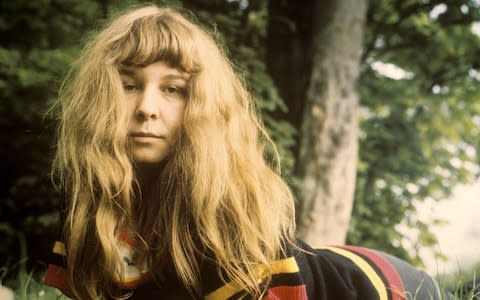
6: Your Song – Elton John (John, Taupin), 1970
A ballad about songwriting itself, by two of Britain’s most sophisticated songwriters. It’s playful, self-referential and utterly romantic.
5: Creep – Radiohead (Yorke, Hammond, Hazlewood), 1992
The song Thom Yorke loves the least is also his most powerful. The tune floats with dreamy wonder and paranoid rage over a four-chord sequence.
4: The First Time Ever I Saw Your Face – Ewan MacColl, 1957
Mesmerising song of sensual worship, improbably composed by sweater-clad political folky Ewan MacColl and describing his adulterous attraction to future wife Peggy Seeger.
3: Life on Mars – David Bowie, 1971
The only reason this doesn’t top my list of “British Standards” is that it may be too strange and other-worldly to lend itself to reinterpretation: it takes a singer of Bowie’s elastic range to even attempt it. Bemoaning a barrage of media disinformation, it feels very much a song for our times.
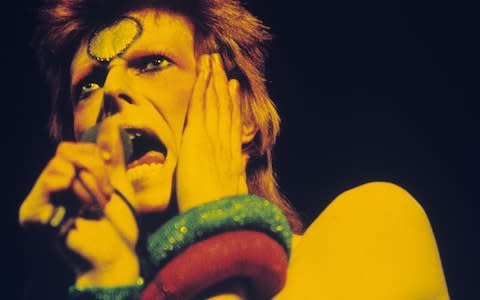
2: Waterloo Sunset – The Kinks (Ray Davies), 1966
Davies’ most beautiful song finds divinity in the commonplace. Waterloo Sunset has a hymnal quality, as a lonely man finds solace among strangers. Davies sketches multitudes in a few simple lines that climb to an ecstatic chorus.
1: In My Life – The Beatles (Lennon, McCartney), 1965
The song in which the Beatles’ melodic craft was matched with new lyrical depth and maturity is a meditation on memory. Not a word or note is out of place. I truly believe that it will be sung forever.
Heartbreak

I Once Loved A Lass (The False Bride) – Anon, c 17th century
This Scottish folk ballad – the lament of a jilted lover, which has a beautiful melody and ends in a riddle – is eternally moving.
Love Will Tear Us Apart – Joy Division (Curtis, Hook, Morris, Sumner), 1980
The monotone drive of the Manchester quartet disguises the richness of this extraordinarily sad song. Ian Curtis’s forensic lyric of relationship decay combines with a melancholic melody.
Do You Really Want to Hurt Me – Culture Club (Hay, George, Craig, Moss), 1982
Boy George’s transgender image grabbed the attention, but his real impact lies in his talent as a songwriter. This slice of Eighties pop begins with an exquisite introduction before unfolding into a perfect vignette of heartbreak.
Love is A Losing Game – Amy Winehouse, 2007
Winehouse’s drug addiction and death, in 2011, cut off a world-beating talent. All 11 tracks on her second, final album deserve to be acknowledged as classics. This jazzy gem might have been plucked from the American canon.
Hurts – Emeli Sandé (Sandé, Murray, Omer, Holmes, Leigh), 2016
“Hold tight, it’s a singalong!” The staccato rhythmic attack of Sandé’s furious anthem is embedded in the lyrics themselves. As with many modern pop songs, this involved a large studio team of writer-producers. If you ever wondered what happened to Blazin’ Squad, several members are credited here.
Desire

Nights In White Satin – The Moody Blues (Hayward), 1967
The title refers to sheets on a lover’s bed. The heady melody and distraught mysteriousness of Justin Hayward’s lyric combine to create a physical sense of craving.
Wild Horses – The Rolling Stones (Jagger, Richards), 1971
A break-up song ripe with sexual desire from an all-time great writing team who were pioneers of refashioning American genres.
The Man With The Child In His Eyes – Kate Bush, 1978
One of the most original talents in popular music, Bush wrote this aged 13 and recorded it at 16. Her tale of a magical night-time visitor is imbued with nascent sensuality.
Is It A Crime – Sade (Adu, Matthewman, Hale), 1985
A languorous, jazzy groove and melody snake seductively through the conflicted lyric conflating jealousy and desire. You could easily mistake this for a lost classic from the Great American Songbook.
Kiss From A Rose – Seal, 1994
An intricate, baroque melody rises and falls in glorious cascades, lending a quality of sensual abandon to a ballad that draws parallels between desire and drug addiction. Henry Olusegun Adeola Samuel (aka Seal) was at first too embarrassed to play the song to his producer; it went on to win Song of the Year at the 1996 Grammys.
Romance
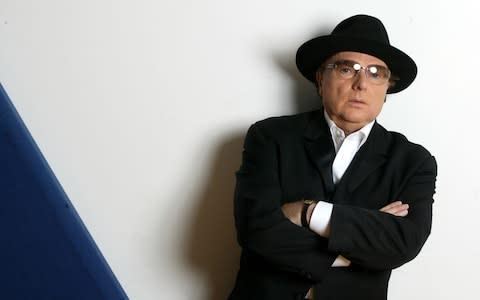
Goodnight Sweetheart – Ray Noble, Jimmy Campbell, Reg Connelly, 1931
A sweet lullaby, recorded by such distinctive vocalists as Bing Crosby, Dean Martin, Connie Francis and Sarah Vaughan.
Moondance – Van Morrison, 1970
The great Northern Irishman’s muse has carried him on wild astral journeys. This easy-flowing lunar groove was quickly adopted as a jazz standard.
How Deep Is Your Love – Bee Gees (Barry, Robin and Maurice Gibb), 1977
This swoonsome melody stands out from the Manchester-born, Australian-raised Gibb brothers’ peerless catalogue of hits.
There Must Be An Angel (Playing With My Heart) – Eurythmics (Lennox, Stewart), 1985
A giddily undulating tune perfectly matches a lyric of ecstatic sensual overload.
Give Me A Little More Time – Gabrielle (Gabrielle, Barson, Wolff, Dean), 1996
Standing out from the guitar clang of Nineties Britpop, the best songs of Louise Gabrielle Bobb have the understated emotional tension of classic Motown.
Enduring Love

Maybe I’m Amazed – Paul McCartney, 1970
Rarely has a song so perfectly captured a man’s bewilderment at, and gratitude for, being loved as this ballad by a post-Beatles McCartney for his wife Linda.
Dimming of the Day – Richard and Linda Thompson (Richard Thompson), 1975
Thompson’s exemplary writing has a hard-life edge, at its best in this stoic ballad of love from afar.
English Rose – The Jam (Weller), 1978
Despite his reputation for rock, there has always been a gentler, bucolic side to Paul Weller. This early beauty has the depth and resonance of an ageless folk song.
Have I Told You Lately – Van Morrison, 1989
Composed as a prayer by one of the giants of popular music, this dedication to enduring love has become one of Britain’s favourite wedding songs.
Thinking Out Loud – Ed Sheeran (Sheeran, Wadge), 2014
The Suffolk-raised acoustic superstar had a massive global hit with this well-crafted, deathlessly romantic ballad that has a touch of blue-eyed soul.
Longing
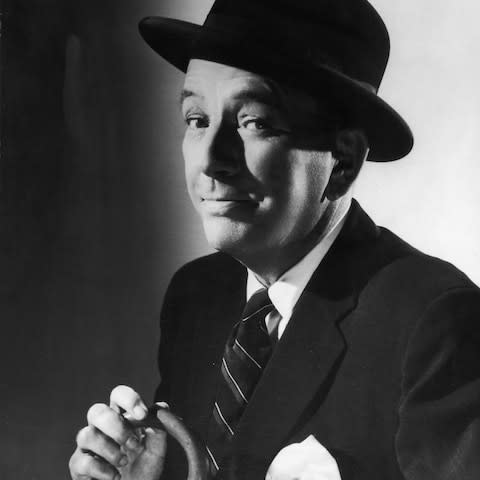
Greensleeves – Anon, 16th century
One of the simplest, most heartbreaking love songs ever written: a melancholic melody etched over four circling chords.
Mad About The Boy – No?l Coward, 1932
A witty satire of unrequited adoration is counterbalanced by a melody suffused with desire in a song composed by the playwright and actor for a theatrical revue.
Somebody to Love – Queen (Mercury), 1976
Freddie Mercury’s swooning tune sweeps listeners away on a wave of melodramatic desperation: flamboyant yet full of feeling.
Willow – Joan Armatrading, 1977
Armatrading’s virtuoso musicianship is matched by the craft of her writing. Willow is a triumph of metaphor and melody.
There is a Light That Never Goes Out – The Smiths (Marr, Morrissey), 1986
A classic by one of the greatest writing teams. Johnny Marr’s luminous gifts as a melodicist were pushed into strange realms by Morrissey’s unique lyricism.
Home
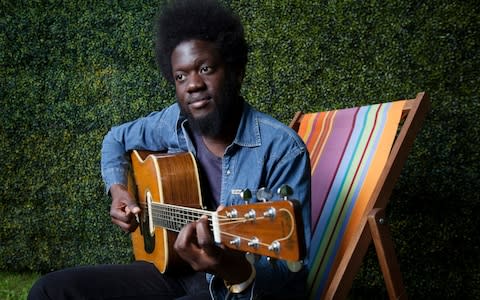
Our House – Crosby Stills Nash & Young (Nash), 1970
From the founder of the Hollies and CSNY, this is Graham Nash’s sweetest ditty, a paean to domesticity written when he shared a home with Joni Mitchell (and her cats).
Goodbye Yellow Brick Road – Elton John (John, Taupin), 1973
John’s gorgeous melody offsets Bernie Taupin’s bitter lyric in a song of escape from an oppressive relationship back to a vividly remembered childhood home.
Sailing – Gavin Sutherland, 1972
Sutherland claims that his song – turned into a global anthem by Rod Stewart in 1975 – is about spiritual fulfilment rather than getting back to his girl.
Our House – Madness (Foreman, Smyth), 1982
A nostalgic and lovingly observed snapshot of family life that has inspired many a singalong.
Home Again – Michael Kiwanuka, 2012
A melancholic gem about finding home inside yourself. It has a soulfulness that’s reminiscent of Bill Withers: lovely flowing chords underpinning a mantra of self-reconciliation.
People
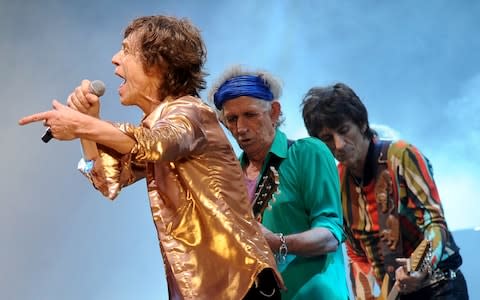
Danny Boy – Frederic Weatherly, 1913 (to the tune of Londonderry Air, Anon)
The words to this classic about homesick longing were written by an English lawyer, credited with at least 3,000 popular songs.
Ruby Tuesday – The Rolling Stones (Jagger, Richards), 1966
Keith Richards wrote the lyrics for this delicate sketch of a free-spirited girl while on tour and missing ex-girlfriend Linda Keith.
Lola – The Kinks (Ray Davies), 1970
Davies wrote 14 classic singles in four years from 1964-68. Two years later came Lola, perhaps the most subversive love song in pop.
Alison – Elvis Costello, 1977
Appearing on Costello’s debut album, Alison may be the most poisonous love song ever written.
Roxanne – The Police (Sting) 1978
This pleading tale of a man in love with a prostitute gave the Police their first hit. Its jazzy elegance lends itself to interpretation, with gorgeous versions by George Michael and by Sting singing solo.
Places

Scarborough Fair – Anon (c. 16th century)
This medieval folk ballad has been revised over hundreds of years, with the “parsley, sage, rosemary and thyme” refrain added as recently as the 19th century.
Don’t Cry For Me Argentina – Lloyd Webber, Rice, 1976
Andrew Lloyd Webber made his finest work with lyricist Tim Rice. From their musical Evita, this haunting ballad encapsulates the tragedy of dictator’s wife, Eva Perón.
Wuthering Heights – Kate Bush, 1978
Few debut hits have been quite as flamboyantly peculiar as Kate Bush singing the part of a ghostly Cathy from Emily Bront?’s 19th-century novel. The song has an irresistible, ethereal beauty.
Fairytale of New York – The Pogues with Kirsty MacColl (Finer, MacGowan), 1987
Sprawling, rumbustious, foul-mouthed narrative of immigrants loving, fighting, falling out and reminiscing about a bitter winter in New York. The greatest Christmas song ever, written by a couple of Anglo-Irishmen.
Goodbye England (Covered in Snow) – Laura Marling, 2009
A writer of cool intelligence and folky melodiousness, Marling, 28, has seven exceptional albums to her credit. This song conflates memories of a person and place the singer both longs for and needs to escape.
Materialism
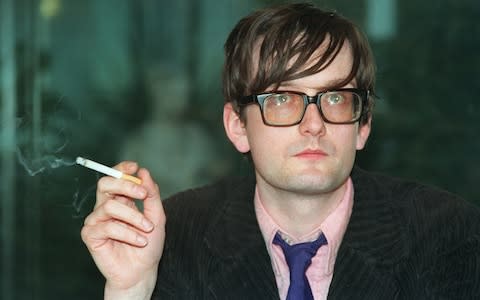
Handbags and Gladrags – Mike d’Abo, 1967
Bittersweet advice from an old man to his spendthrift granddaughter, composed by the frontman of Manfred Mann.
Diamonds are Forever – John Barry, Don Black, 1971
Surely the definitive Bond song: Barry’s arpeggios lend a sinister edge to the velvet melody, while Black’s lyrics amp up the cynicism.
Stairway to Heaven – Led Zeppelin (Page, Plant), 1971
The heavy rockers’ eight-minute classic spans a huge musical arc beneath which lies an achingly lovely pastoral ballad.
Common People – Pulp (Banks, Cocker, Doyle, Mackie, Senior), 1995
A comic anthem of class and social mobility from Britpop’s sharpest wits, led by Jarvis Cocker, and often rumoured to be about the wife of Yanis Varoufakis. Cocker’s deadpan ironies barely dampen the song’s underlying fury.
Nightblindness – David Gray, 1998
The passionate troubadour revived the art of sensitive acoustic singer-songwriting with his home-recorded album White Ladder (which took three years to reach number one in 2001). This is his bleakest, most desperate song about the pressures of being broke.
The Beatles UK number ones
Idealism
Jerusalem – Lyrics William Blake, 1804; music Hubert Parry, 1916
Blake’s poem “And Did Those Feet in Ancient Time” imagined Jesus in Albion. Set to music by Parry more than 100 years later, it has a status as an alternative national anthem that scarcely diminishes its beauty.
We’ll Meet Again – Ross Parker, Hughie Charles, 1939
Imbued with lightness and hope in the hardest of circumstances, Vera Lynn’s recording became a beacon to Allied troupes, fighting the Second World War far from home.
Let It Be – The Beatles (Lennon, McCartney), 1970
The Lennon and McCartney songwriting axis is arguably the greatest in pop history. From the Beatles’ final album, this is McCartney’s most profound anthem of spiritual consolation.
Imagine – John Lennon, 1971
Is Lennon’s gentle song absurdly rose-tinted? Perhaps, but it comes wrapped in a melody that helps its utopian sentiments soar.
(Something Inside) So Strong – Labi Siffre, 1987
Inspired by a television documentary about Apartheid, Siffre’s stoical anthem has been taken up as a protest song with a quality of fierce honour and truth that still rings true today.
Happiness
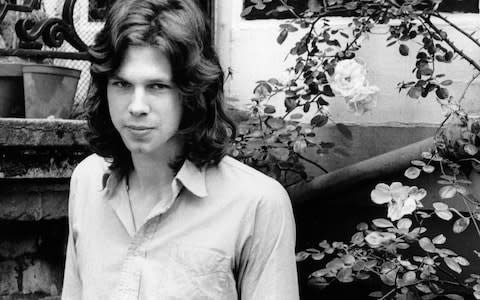
Feeling Good – Anthony Newley, Leslie Bricusse, 1964
Made famous by Nina Simone, this lusty explosion of pure joy has become an American jazz standard but was, in fact, composed by the English actor-singer Newley.
Moonshadow – Cat Stevens, 1970
A jolly ditty written while the Londoner was on holiday in Spain, after he realised for the first time that moonlight casts shadows, too.
Northern Sky – Nick Drake, 1970
After his suicide in 1974, Drake gained a reputation as a terminal melancholic yet, as here, the loveliness of his melodies and spiritual yearning of his lyrics often proved radiantly uplifting.
Friday I’m In Love – The Cure (Bamonte, Williams, Gallup, Smith, Thompson), 1992
Self-styled doomy goth Robert Smith is another unlikely purveyor of happiness – it’s hard to conceive of a song more unabashedly joyous than this.
One Day Like This – Elbow (Garvey, Jupp, Craig and Mark Potter, Turner), 2007
A glorious, exultant and unusually subtle anthem locating reasons to live in moments of joy, with a fluid singalong coda.
Torch Songs

The First Cut Is The Deepest – Cat Stevens, 1965
Before he converted to Islam and changed his name to Yusuf, Stevens established himself as a pop singer of rare emotional depth, as in this ballad of wounded love.
Romeo and Juliet – Dire Straits (Knopfler), 1980
Mark Knopfler’s virtuoso playing and gruff singing should not distract from his songwriting. This colloquial narrative of a broken relationship buries deep feeling in throwaway phrases.
Against All Odds (Take A Look At Me Now) – Phil Collins, 1985
Epic ballad from the Genesis drummer-turned-frontman. As a songwriter, Collins was a late developer: it took a painful divorce to really get him going.
The Scientist – Coldplay (Martin, Buckland, Berryman, Champion), 2002
Chris Martin has a McCartney-esque gift for melody, which has always kept his rock band rooted in song.
Set Fire To The Rain – Adele (Adkins, Fraser T Smith), 2011
Adele is celebrated for her huge voice, but songcraft is the basis of her success. This storming power ballad is simultaneously bereft and defiant.
Sadness and Regret

Yesterday – The Beatles (Lennon, McCartney), 1965
Overfamiliarity should not blind us to the melancholy beauty of Paul McCartney’s masterpiece, the most covered song in history.
Man of the World – Fleetwood Mac (Green), 1969
This is guitar genius Peter Green’s saddest song, about a man who has everything – except for the one thing he really wants.
Up The Junction – Squeeze (Difford, Tilbrook), 1979
Glenn Tilbrook’s flowing melody adds a sense of fantasy to Chris Difford’s touching account of domestic disharmony. Possibly the only classic hit ever to refer to smelly nappies.
Shipbuilding – Elvis Costello, Clive Langer, 1982
Costello’s powerfully plaintive protest against the Falklands War.
Please, Please, Please Let Me Get What I Want – The Smiths (Marr, Morrissey), 1984
Morrissey has rarely been so artless as he is here. The exquisiteness of the melody underlines the song’s direct plea for a change of fortune.
Togetherness
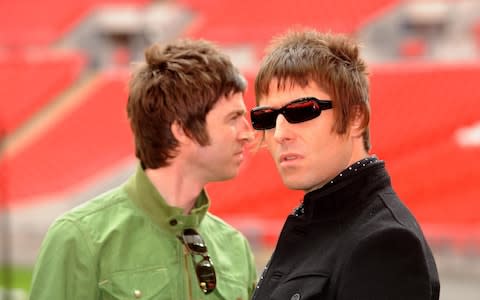
With A Little Help From My Friends – The Beatles (Lennon, McCartney), 1967
Written for drummer Ringo Starr, this has a question and answer structure that builds to a delightful chorus celebrating friendship.
May You Never – John Martyn, 1973
Martyn struggled with addiction throughout his life, which makes his hymn to tolerance and friendship all the more potent.
Heroes – David Bowie (Bowie, Eno), 1977
Despite the ironic quotation marks of the title, Bowie’s inspirational anthem celebrates the heroism of ordinary people.
Don’t Look Back In Anger – Oasis (Noel Gallagher), 1996
Songs that inspire singalongs tend to be too emotionally simplistic to make it on to this list. Yet the sheer triumphal zest of this Oasis classic is undeniable.
Angels – Robbie Williams (Williams, Chambers), 1997
Written by the former boy-band star with musical director Guy Chambers, Williams’s signature number has a huge melodic span and a powerful lyric of maternal devotion.
Loss and Grief

Candle in the Wind – Elton John (John, Taupin), 1974
An elegy for Marilyn Monroe. Repurposed in 1997 as a tribute to Diana, Princess of Wales, it became the biggest-selling single in history.
The Living Years – Mike and the Mechanics (Rutherford, Robertson), 1988
Written by Genesis guitarist Mike Rutherford with Scottish pop star BA Robertson, the song addresses the death of an estranged father; its chorus is a plea for reconciliation.
The Drugs Don’t Work – The Verve (Ashcroft), 1997
This brooding ballad became a No 1 hit in the week Diana, Princess of Wales died, catching the mood of a nation in mourning. Bound up in the song are Richard Ashcroft’s feelings about the deaths of his stepfather, and father-in-law.
In The Dark Places – P J Harvey, 2010
Harvey’s songs can be challenging, with droning melodies and darkly poetic lyrics, though the occasional mysterious vignette shines through, such as this beautiful depiction of the cost of war.
(No One Knows Me) Like The Piano – Sampha, 2017
Sampha Sisay operates in a sonically modern electronic R&B genre, but he never loses sight of the song beneath the production. This is a devastating account of his urge to cling to music following the death of his mother.
Mystery
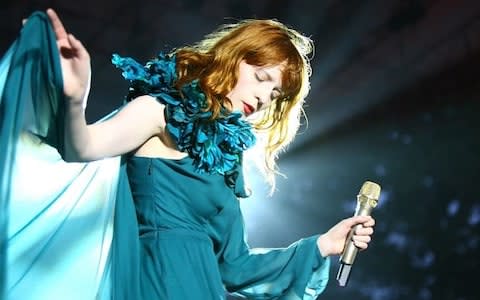
A Whiter Shade of Pale – Procol Harum (Booker, Reid, Fisher), 1967
The incessant movement of the music – which bears a resemblance to Bach’s Air on the G String without actually quoting it – creates a woozy atmosphere, enhanced by imagistic lyrics.
The Whole of the Moon – The Waterboys (Scott), 1985
An exultant paean to genius, brimming with language worthy of Mike Scott’s poetic hero W B Yeats.
Ocean Rain – Echo and the Bunnymen (Sergeant, McCulloch, Pattinson, De Freitas), 1984
The psychedelic Liverpudlian band reintroduced a sense of wonder and grandeur into Eighties rock. Seafaring images spill over a magnificent shanty, sailing towards heartbreak and glory.
The Universal – Blur (Albarn, Coxon, James, Rowntree), 1995
From Damon Albarn, a songwriter of dazzling compositional range, comes this seductive sci-fi anthem with a touch of Bacharach.
Cosmic Love – Florence and the Machine (Welch, Summers), 2011
Florence Welch is carving out a unique space in pop by combining energetic splendour and histrionic emotion with lyrical intelligence and melodic ambition. Here, desire is conjured as an interstellar event.
Faith and Spirit
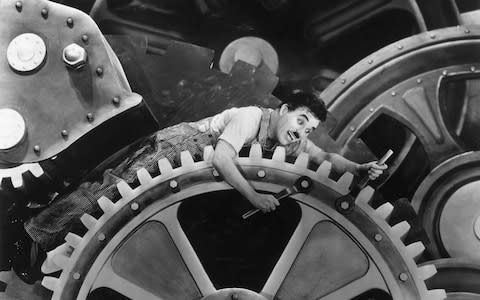
Morning Has Broken – Lyrics Eleanor Farjeon, 1931; music traditional
The melody is based on an ancient Scottish Gaelic tune known as Bunessan. Children’s author Farjeon wrote new lyrics for this touchingly ebullient hymn.
Smile – Charlie Chaplin, 1936; lyrics John Turner, Geoffrey Parsons, 1954
Chaplin composed the theme music for his Modern Times. Turner and Parsons added lyrics later, using ideas from the film.
Across The Universe – The Beatles (Lennon, McCartney), 1970
This late Beatles piece is filled with dazzling images of wonder, where “words are spilling out like endless rain into a paper cup”.
Be Not So Fearful – Bill Fay, 1972
A masterpiece of hymnal solace from one of Fay’s two magical, unjustly overlooked albums from the early Seventies.
Run – Snow Patrol (Lightbody, Quinn, McClelland, Connolly, Archer), 2003
An anthem for our age in which apocalyptic verses surrender to a chorus promising a departed lover will always be present.
Alienation
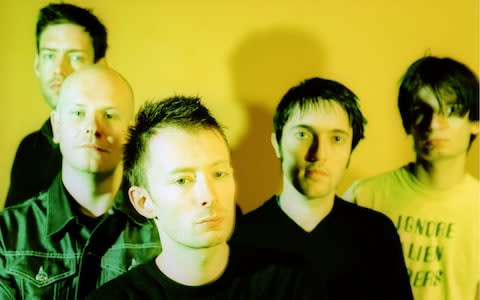
Space Oddity – David Bowie, 1969
This sci-fi epic from pop’s spaceman is a weightless masterpiece, breaking songwriting rules with impunity.
Behind Blue Eyes – The Who (Townshend), 1971
Roger Daltrey’s favourite Who song. Switching between self-pity and rage, the sweet melody is a beguiling chimera, masking the tears of a villain.
Watching The Detectives – Elvis Costello, 1977
Using television cop shows as a metaphor for psychological and emotional disintegration, this is an audacious adventure in paranoia.
Mad World – Tears for Fears (Orzabal), 1982
Teenage bewilderment at the world encapsulated in a melancholic jewel. It launched Tears For Fears’ career but the definitive version is Gary Jules’s cover for 2001 film Donnie Darko.
Fake Plastic Trees – Radiohead, 1995
Although songs are credited to the band, frontman Thom Yorke is key writer, with a golden gift for emotionally overwhelming melody and vividly anachronistic lyricism. No one does existential dread better than Radiohead.
Solve the daily Crossword

